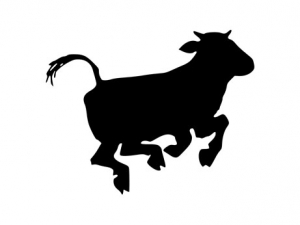This isn’t feeding time, though. Instead, the animals are to be measured for the effects of radiation 15 times above the safe benchmark. The cows’ pasture is near Fukushima, a name synonymous with nuclear disaster. This former agriculture haven once had 3500 cattle and other livestock. Farmers who defied a government order to kill their cows continue to feed and tend about 200. But the herds won’t be used as food; now science is their mission. Researchers every three months test animals within a 20km radius of the Fukushima plant, where three reactors suffered core meltdowns after being swamped by a tsunami in 2011. It is the first study of the impact on large mammals of extended exposure to low-level radiation.
In an abandoned Japanese village, cows grazing lush green plains begin gathering when they hear the familiar rumble of the ranch owner’s mini-pickup.
Popular Reads
Fonterra confirms timeline for Lactalis deal and $2-per-share capital return
The sale of Fonterra’s global consumer and related businesses is expected to be completed within two months.Canterbury arable farmers face heavy losses after stormy January wreaks havoc
Canterbury arable farmers are down by tens of millions of dollars after a rollercoaster of wild changeable January weather saw harvests…Northland Field Days promise unforgettable 40th anniversary Celebration
A 40th Anniversary event to remember.Formula goes sour
OPINION: Media reports say global recalls tied to cereulide toxin contamination in milk-based nutrition brands could inflict combined financial losses…Featured
DWN Appoints Nicola Bryant as Associate Trustee
Dairy Women's Network (DWN) has announced that Taranaki dairy farmer Nicola Bryant will join its Trust Board as an Associate Trustee.
Pay Equity Crucial for Rural Communities - RWNZ
Rural Women New Zealand (RWNZ) says it welcomes the release of a new report into pay equity.
Red Meat Exports Deliver $1.4bn in Tariff Savings Across EU, UK and US Quota Markets
Red meat exports to key quota markets enjoyed $1.4 billion in tariff savings in the 2024-25 financial year.
Remediation NZ Fined $71k Over Compost Site Odours
Remediation NZ (RNZ) has been fined more than $71,000 for discharging offensive odours described by neighbours as smelling like ‘faecal and pig effluent’ from its compositing site near Uruti in North Taranaki.
Bay of Plenty and Northland Orchards Named Finalists for Ahuwhenua Trophy
Two kiwifruit orchards in the Bay of Plenty and one in Northland are this year's finalists for the Ahuwhenua Trophy competition.
Dr John Roche Focuses on Reform, Emergency Readiness and Communication
The Government's chief science advisor, Dr John Roche says the key objective for the science sector in the coming year is bedding down the reforms which sees the merger of the previous entities.
National
Green Light for Fonterra's $3.2b Capital Return Scheme
Fonterra farmer shareholders have approved the mechanism for a $2/share capital return expected from the sale of its global consumer…Alex Turnbull Appointed CEO of Yili Oceania Division
Former Fonterra executive Alex Turnbull has been appointed CEO to lead all five Yili Oceania Business Division companies in New Zealand.Dedoncker Departs Fonterra After Mainland Group Sale
Fonterra executive René Dedoncker is leaving the co-operative later this year to lead Australian agribusiness Elders.Organic plan generates strong farmer interest
Fonterra's plan to expand its organic programme to the South Island is being well received by farmers, the co-op says.DairyNZ Levy Vote Underway as Chair Highlights Seven-Fold Return
Voting has started for the renewal of DairyNZ's milksolids levy.Machinery & Products
Massey Ferguson 5M Series Gains Ground in NZ’s 95–145hp Utility Tractor Market
Since its official release to the New Zealand market in July 2025, the Massey Ferguson 5M Series has steadily solidified…Claas Invests €3.3 Million in Metz Plant to Boost CEREX and CUBIX Baler Production
Following the €1.6 million investment in a prototype workshop in early 2025, Claas has invested an additional €3.3 million at…Stihl unveils centennial MS 500i chainsaw
Most rural properties wouldn’t be without a chainsaw, so it’s fitting to celebrate the centenary of Andreas Stihl inventing the…New Deutz-Fahr 5105 boosts power for Kiwi livestock farms
With ROPS tractors still being consistently popular in livestock operations, given their ease of use for hopping on and off…John Deere showcases 130hp E-Power electric tractor prototype at Agritechnica
Easily missed on its expansive Agritechnica site, John Deere offered visitors to the bi-annual event, the first opportunity in Europe to…» Latest Print Issues Online
Milking It
Disunity is death
OPINION: Staying with politics, with less than nine months to go before the general elections, there’s confusion in the Labour…
Indian FTA
OPINION: Winston Peters' tirade against the free trade deal stitched with India may not be all political posturing by the…
















